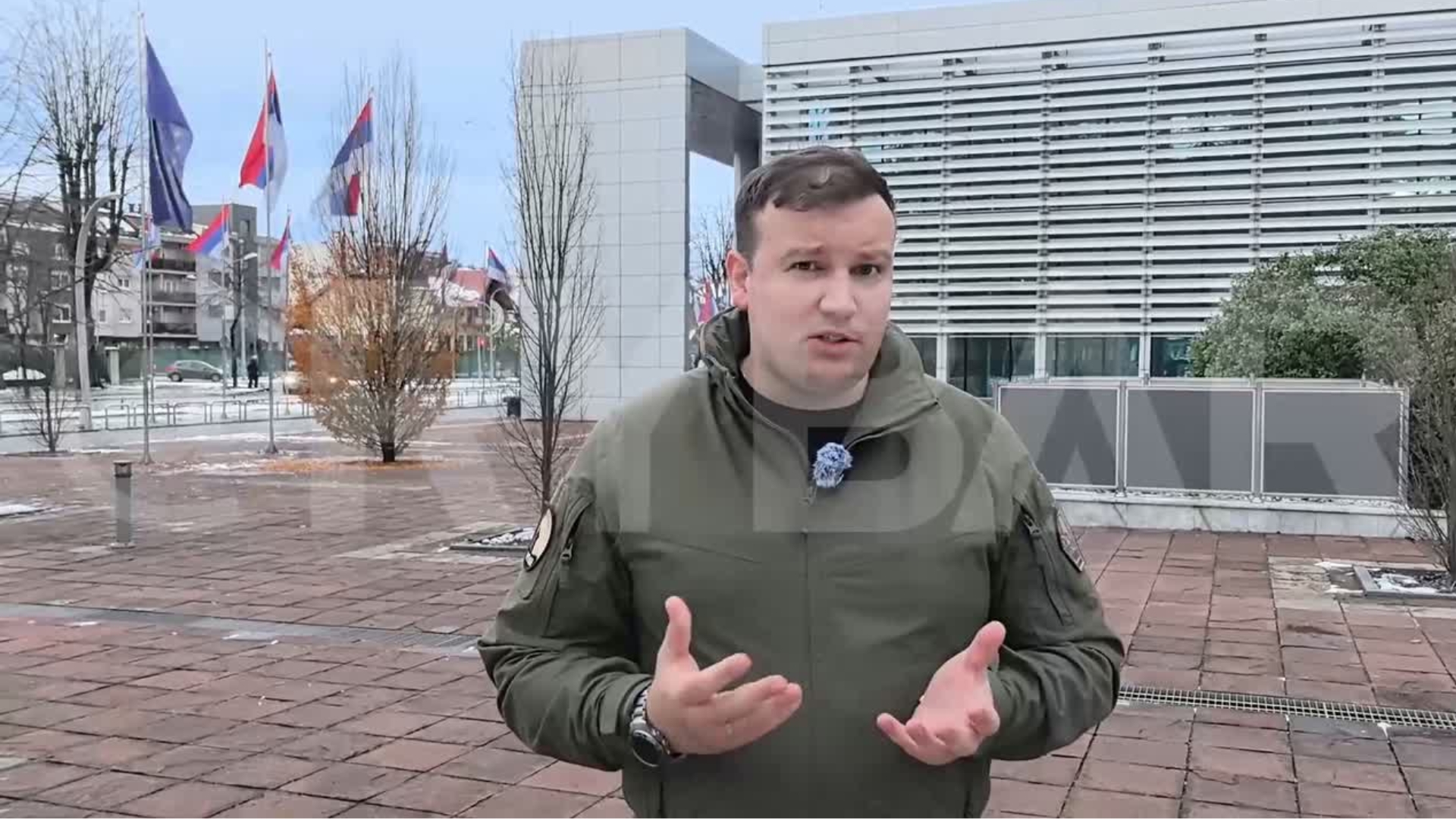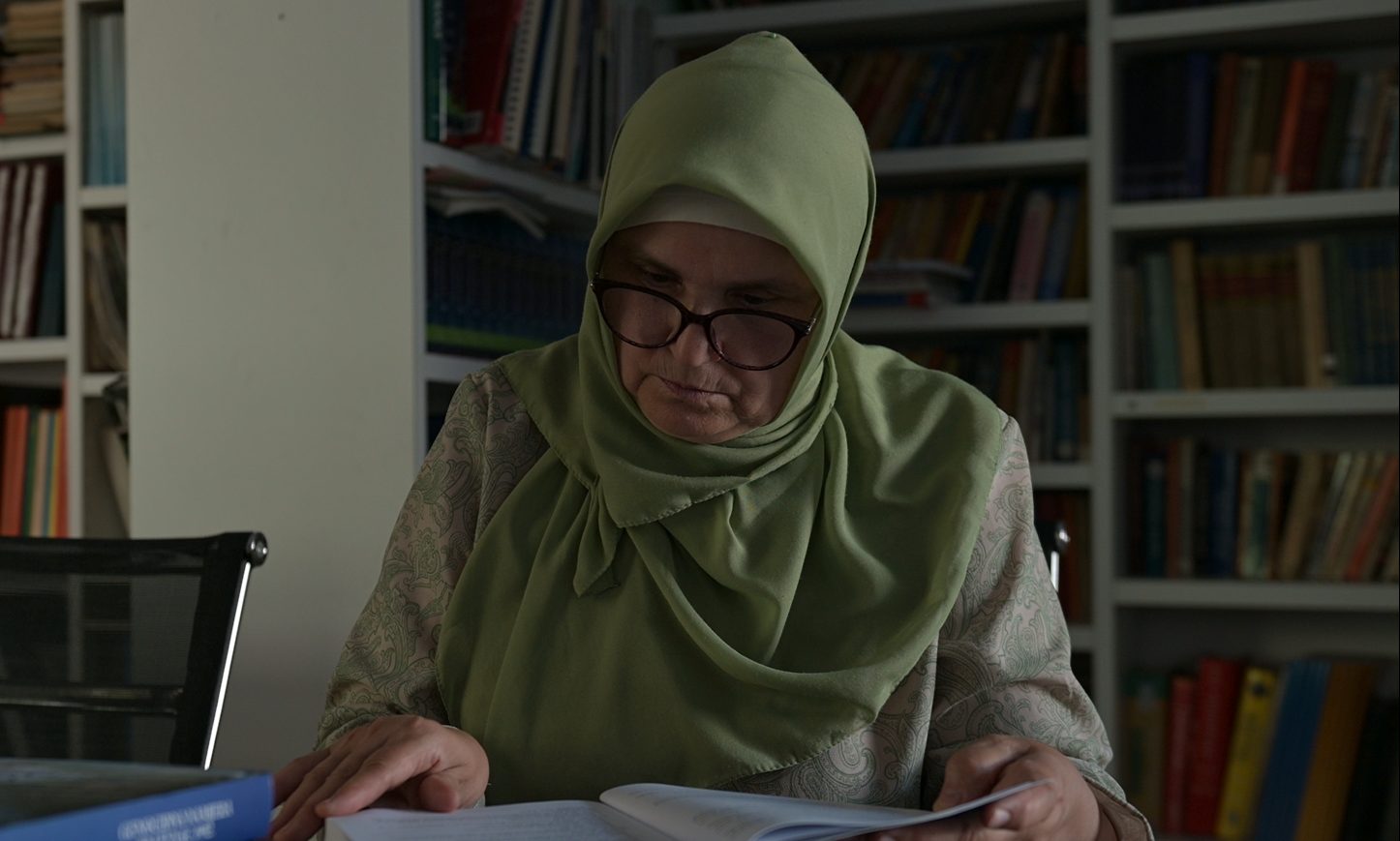This post is also available in: Bosnian
A part of the archives in the basement of the building, Sarajevo, 2020. Photo: Martino Lombezzi
Archives of seized items in Court of Bosnia and Herzegovina, Sarajevo, 2020. Photo: Martino Lombezzi
Archives of seized items, Sarajevo, 2020. Photo: Martino Lombezzi
The records office on the second floor of the court building in Sarajevo is just one of the rooms in which the case files of the court’s war crimes section are kept. There are also files from ongoing organised crime cases.
“Two thousand nine hundred cases are ongoing, with 12,950 binders,” says Novak. “We use them on a daily basis, but because of the lack of space, part of the binders are stored in other rooms in the building.”
This is not to mention the closed war crimes cases. The files for those are spread over five other rooms in the basement of the court building.
“Bosnia and Herzegovina has strict rules on archives, but we cannot fully abide by them,” confesses Novak. “Not all archive rooms meet the rules on temperature, light and humidity.”
“There is a total lack of space and capacity for the archives,” confirms registrar Emira Hodzic, who is in charge of the entire registry as the chief executive officer of the Court of Bosnia and Herzegovina.
“We need a single facility, a place where all cases, documents and evidence can be found,” Hodzic says. “Currently, we do not have the capacity to organise the archive for each case file in a systematic way, as prescribed by the rules. This is a huge problem: those are files that represent the history of our country,” she adds.
Not only does Hodzic have a lack of physical space, there is also no electronic archive. Public files and exhibits are not accessible online – not for judges, lawyers and prosecutors, nor for the general public.
Registrar Emira Hodzic, Court of Bosnia and Herzegovina, Sarajevo, 2020. Photo: Martino Lombezzi
Danijela Novak, head of the Court Management Section of the Court of Bosnia and Herzegovina, Sarajevo, 2020. Photo: Martino Lombezzi
Danijela Novak, the head of the Court Management Section, outlines the scale of the problem.
“The rule is: scan all public documents,” she says. “But we receive so many documents, we simply do not have the capacity to carry out that task. We do not have the right equipment, nor the personnel.”
When prosecutors, lawyers or their legal staff need to retrieve a case file from the archive, they first have to ask for judges’ approval. When this step is taken, only authorised personnel from the records office are allowed to search for it. Then the applicant is invited to come to the records office in person to study the file.
Novak points to a corner of the crammed office: “They can sit behind that desk.”
“It’s so old-fashioned and time-consuming,” sighs Nina Kisic, who has worked as a defence lawyer in several war crimes cases at the state court.
Nina Kisic, defence lawyer, in her office, Sarajevo, 2020. Photo: Martino Lombezzi
“Access to documents is very limited. Most evidence I find through the website of the ICTY. They do a great job with their online archive,” she says. There, one can easily search for relevant information through keywords, names or places – in Bosnia’s state court, this is impossible.
The absence of an electronic filing system at the state court makes her work even more complicated. “When I need to do a filing, I can only carry it out when the post office is still open in order to send the file by mail. And if I want to find out if a person testified before, I can only do so by reading earlier judgments – which also cannot be found online in every case,” she explains.
“Sometimes, when I realise that the prosecutor’s office is the only place where I can find some evidence, I need to ask the judge for a court order for disclosure. Then I have to go to the prosecutor’s office and look through their binders by hand,” she adds.
The situation is challenging for legal personnel, but for the general public, it is even harder to understand how and where to find relevant material. “Sometimes, we receive a request from a victims’ association or a student working on a master’s thesis,” court manager Novak says. “But from the general public: rarely.”
‘Politicians create a negative atmosphere’
Courtroom, Court of Bosnia and Herzegovina, Sarajevo, 2020. Photo: Martino Lombezzi
Even though the importance of easily accessible and well-functioning archives is continuously stressed by both domestic and international experts and institutions, the situation is far from ideal in most Balkan courts.
The condition of the archives of the Court of Bosnia and Herzegovina is just one example of the challenges that are being faced by everyone involved in war crimes trials.
“We learned so much, not only about archives but also about witness protection, legal procedures and fair trials,” says Hodzic, who was one of the first national legal employees in 2005, when the Court of Bosnia and Herzegovina was established.
The first war crimes cases were handled by mixed teams of domestic and international staff, and Hodzic worked with international judges and lawyers. But from 2011 onwards, the international staff left.
She says that the International Criminal Tribunal for the Former Yugoslavia in The Hague was the Bosnian state court’s “role model”. “There were so many good reforms in our legal system. Now, in these last years, we have been trying to maintain the international standards, despite current negative social processes of stagnation that are taking place in Bosnia and Herzegovina,” she says.
The record office, where the administration of the war crimes section of the court is kept, Court of Bosnia and Herzegovina, Sarajevo, 2020. Photo: Martino Lombezzi
The record office, where the administration of the war crimes section of the court is kept, Court of Bosnia and Herzegovina, Sarajevo, 2020. Photo: Martino Lombezzi
Hodzic blames politicians for deliberately creating a negative atmosphere in society about the court. “Politicians often criticise the court when one of their own ethnic kin is convicted,” she says. “They do not read the full judgements, they just look at the outcomes. With their comments on television, they try to exert pressure on us.”
However, Hodzic asserts that she and her colleagues are used to this negative attitude towards their work, and try not to pay attention. “The only tangible influence they have is on our budget. With the failure to adopt our budget, they can limit our performance. And that is exactly what they do.”
“Last year, we did not have any budget for the capital investments that we need so badly. We could only pay salaries and for the general maintenance of our institution. The same thing is happening this year: we are still waiting for the approval of our budget,” she continues.
One of the crucial capital investments that is needed, is digital capacity for the audio-visual material from trials.
“Our IT staff is doing magic to find storage room for the audio and video recordings of the trials. These are official records of the case, we cannot and should not erase them – it is the legacy of our court. However, all our servers are full,” Hodzic says.
‘Prosecutors are sometimes unaware of evidence’
A employee from the Court Management Section transports documents. Photo: Martino Lombezzi
These and other challenges for the court personnel are confirmed by recent reports from the Organisation for Security and Cooperation in Europe, OSCE and the European Union that overtly criticise public institutions in Bosnia and Herzegovina.
“Some key actors show no determination to address or overcome dysfunctionalities through coordination and cooperation,” the EU said in its Expert Report on Rule of Law Issues in Bosnia and Herzegovina, which was published in December 2019.
“Rather, they seem to do everything to obstruct any change that they consider not to be in their own interest. This attitude negates the laudable attempts of many office holders who try – in their day-to-day work – ‘to make things function’ despite all difficulties and obstacles,” the EU report added.
Systemic reforms are required, writes Reinhard Priebe, the EU’s justice rapporteur, for which a common understanding and a common sense of responsibility across levels of government and institutions “are desperately needed”.
“The state prosecutor’s office fails to focus its resources on investigation and prosecution of the most complex war crimes cases, thus leaving the whole system inefficient,” claims Nedzad Smailagic, a legal officer at the OSCE, in his office in central Sarajevo.
In a report published in June 2019, the OSCE offered several recommendations to make the work of the prosecutor’s office more efficient, and a streamlined archive was one of them, says Smailagic.
“Prosecutors are oftentimes unaware of the existing evidence, as the evidence that is connected to one case cannot be found in another one. There is no single, searchable archive,” he adds.
‘Most relevant material evidence is abroad’
On top of this, a lot of evidence isn’t even held at the court in Sarajevo – it’s in The Hague. “We ran in, vacuumed up everything and went back to base,” said Bob Reid, chief of the operations team at the ICTY prosecutor’s office in an interview in 2017 during the last year of the Hague court’s existence. He was one of the first investigators who went to Bosnia to search for evidence, when the war had barely ended. “We just grabbed everything we could and brought it to The Hague,” Reid said.
To this day, 9.2 million pages of documents and 14,000 items of evidence are stored at the ICTY prosecutor’s office’s evidence unit in the Netherlands.
“Most relevant material evidence is abroad,” says defence lawyer Nina Kisic. “Only the evidence that was used in the trials has been scanned and disclosed. For the other material, access is really difficult – not knowing what documents even exist and then finding where they are. Sometimes this is really frustrating. How can I build my client’s case when I cannot get hold of essential documents?”
“We only have a couple of items here in our court building in Sarajevo,” confirms Amar Alajmovic, an archive officer at the state court.
Alajmovic walks to the storage rooms in the basement of the court, where physical evidence is kept. Access to this area is strictly forbidden to anyone but the two archive officers who work here – no journalist has ever been here before.
Seized and confiscated items like drugs, money and weapons can be found here. “No hand grenades though,” smiles Alajmovic. “We don’t want anything to explode here.”
When he started his job ten years ago, the archive of artefacts was not that well-organised, he remembers: “Everything was scattered around, it took half an hour to locate an item.”
Since then, he and his colleague have established a clear system to organise the hundreds of items that arrive every year, and a stricter system for handling the keys to the various vaults and safes.
“We have two sections,” he explains as he enters a code on the vault in his office to obtain the first key. “One for lower-risk items, and one for higher risk.”
He walks down the hallway to open the padlock on the door of the first archive room. In this room, there are five safes, each with its own code or key, which contain passports, money, silverware and keys to other vaults.
“Me and my colleague are the only ones in this building who can open these safes,” he smiles as he retrieves the key from the vault to the second storage room.
“Here, we keep weapons and drugs,” says Alajmovic as he opens the thick metal door. Apart from seized narcotics and a banknote counterfeiting machine, there are some artefacts that were seized from accused war criminals.
Seized weapons from war crimes proceedings. Court of Bosnia and Herzegovina, Sud Bosne i Hercegovine, Sarajevo, 2020. Photo: Martino Lombezzi
Seized weapons from war crimes proceedings. Court of Bosnia and Herzegovina, Sud Bosne i Hercegovine, Sarajevo, 2020. Photo: Martino Lombezzi
Underground vault where seized weapons are stored, Court of Bosnia and Herzegovina Sarajevo, 2020. Photo: Martino Lombezzi
A camouflage overall worn by Zeljko Tadic, a former member of VRS accused of war crimes, Court of Bosnia and Herzegovina, Sarajevo, 2020. Photo: Martino Lombezzi
Alajmovic opens a box and showed a nine-millimetre pistol that was confiscated from Jadranko Palija, who was sentenced to 28 years in prison in 2007 by the state court.
In the same box, there is also a badge from the Yugoslav People’s Army military police, and some bullets and ammunition casings. “Pored grobnice ” is handwritten on the plastic bag. “5 komada .” “The police investigator who found these casings near a mass grave wrote this down,” says Alajmovic.
He also shows off some camouflage overalls. “These are Zeljko Tadic’s overalls. They were used during his trial and submitted as evidence on 18 July 2019.” The trial of Tadic and fellow Bosnian Serb Army ex-soldiers is still ongoing.
“The state court orders some physical evidence to be destroyed after it is used during a trial. “Not only cigarettes and drugs, but also guns and ammunition,” says Alajmovic.
This is another reason why not so few items can be found in the state court’s archive. “The big war crimes cases with interesting material were dealt with before 2012, when the court was still hybrid. Most evidence is not here anymore,” Alajmovic points out.
Unfinished courtroom used for evidence storage
“Did you know we store part of the administration of ongoing cases in a courtroom?” asks Danijela Novak, back in the records office.
She walks up to the third floor and opens the door to courtroom 10. “This room was never properly used, as there was no money to furnish it. So now we’ve confiscated it and use it as an archive,” she says.
Courtroom 10, adapted to host a part of the archives and used by the judges as deliberation room, Court of Bosnia and Herzegovina, Sarajevo, 2020. Photo: Martino Lombezzi
Courtroom 10, adapted to host a part of the archives and used by the judges as deliberation room, Court of Bosnia and Herzegovina, Sarajevo, 2020. Photo: Martino Lombezzi
In the middle of the room, between the cupboards, are four red chairs and a small table. “This room is multifunctional,” smiles Novak. “It is also used as a deliberation room by the judges of courtroom 9.”
Like the records office, the room is crammed with boxes and binders. Novak and her colleagues are concerned about the future, as indictments keep coming and each of them is accompanied by a load of new files.
According to Bosnia and Herzegovina’s National War Crimes Processing Strategy, work on war-related cases will not be finished before 2023 – and most observers believe this date will be extended beyond that.
“Only five bookshelves remain empty at this very moment,” Novak says. “What to do after these are filled with binders as well? We don’t know.”
Jorie Horsthuis is a Dutch journalist and a political scientist and Martino Lombezzi is an Italian documentary photographer and historian. This article was produced as part of BIRN’s Balkan Transitional Justice grant scheme, supported by the Matra Regional Rule of Law Programme.



















